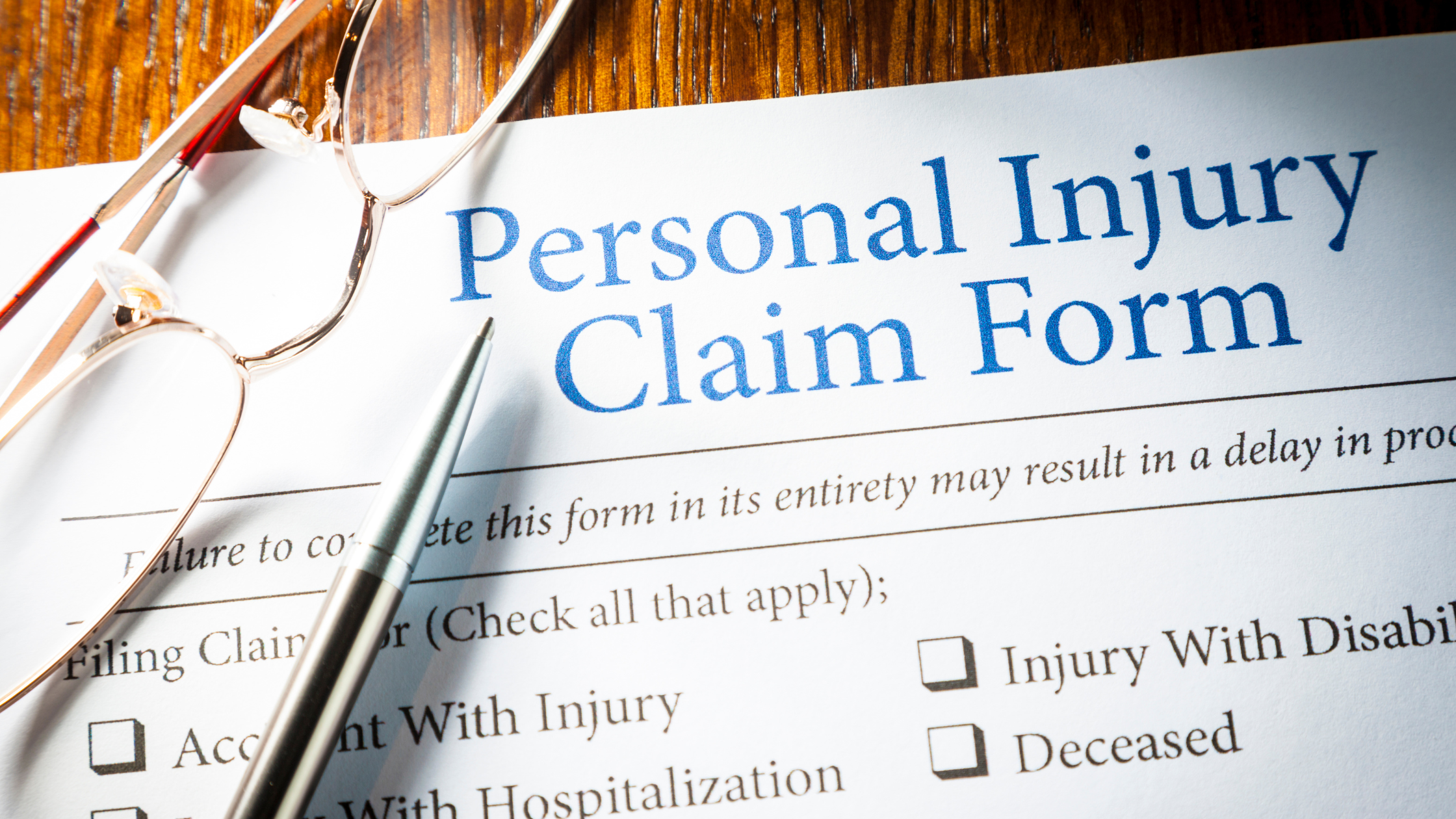Do you want to stand out as a Personal Injury Paralegal?
If you’re like I was when I was working for a big commercial litigation firm, I assumed that since the public called personal injury attorneys the “ambulance chasers,” then personal injury paralegals were paralegals who worked for the ambulance chasers, and I never really thought much about it.
In 2010, I started my own business and was approached by a personal injury firm to help them reduce the bottleneck of cases and train their paralegals.
After that, another personal injury firm approached me to help fix their high turnover. It was invaluable to spend all this time inside a few different types of personal injury firms because I had the opportunity to better understand what the role consists of and how to succeed as a personal injury paralegal. And more importantly, how, given the right circumstances, many of them had pretty awesome careers!
Listen to the podcast episode
Is being a personal injury paralegal right for you?
It depends on what you like to do as a paralegal.
If you’re a litigation paralegal at a big commercial firm and you wish you had more contact with clients, personal injury would be great for you because they talk to clients and meet in person with clients almost every single day. In fact, the clients talk to the paralegals more than they talk to the attorneys.
A personal injury paralegal’s role can vary greatly depending on the business model and staffing model of the law firm.
Some personal injury law firms prefer to separate the paralegal job functions into departments that focus on either the pre-litigation phase of a personal injury claim and then hand off the file to a litigation paralegal.
Others have their paralegals work on a file from case intake all the way through trial.
If the departments have separate functions, the job titles might be:
-
- Case Intake Manager
-
- Case Manager
-
- Litigation Paralegal
- Litigation Paralegal
In some firms, there’s an intake department, a medical records department, and a litigation department.
Let’s say we’re at a firm with the 3 different roles rather than the general type of personal injury paralegal that does it all from start to finish.
Get tips on how to be a successful personal injury paralegal.

If you work in the Case Intake Department, your primary function is to handle incoming phone calls from prospective clients, attend new client meetings, interview the clients, and gather the initial documents related to the claim.
You will then hand off the file to a Personal Injury Case Manager whose primary function is to manage the claim file through the pre-litigation phase. That would involve requesting and reviewing medical records, working with the claims adjuster and preparing the demand package. If the claim does not settle after the demand package, then a civil action gets filed with the court and a litigation paralegal takes over the file.
While this segmented version works well for some firms, other firms prefer to have their personal injury paralegals work the file from case intake all the way through trial. There are certainly pros and cons to each model.
The 3 hats that personal Injury paralegals wear
Regardless of the firm’s staffing model, a personal injury paralegal should be comfortable in all aspects of case management and be prepared to wear many hats. Let’s look at a few of the most common hats that a paralegal might wear in their role as a personal injury paralegal.
1 – The liaison
Personal injury paralegals are the liaison between the clients, attorneys, claims adjusters, medical providers, court personnel and law firm vendors (just to name a few!). They must be highly observant and excellent communicators because they are the main point of contact for so many people who interact with the law firm. They are essentially the attorney’s right-hand person and because of this, it is very important for a personal injury paralegal to have excellent communication skills.
The paralegal speaks to the client on a regular basis and has to be empathetic to what a client might be dealing with as a result of some type of injury or traumatic event. A professional and courteous manner, accompanied by appropriate sensitivity, is important in this role. Keeping the FTFT mindset can help in this liaison role. FTFT stands for “first time for them.” In most cases, the client has probably never had to hire a lawyer or file a case in court. They might not understand that the process can take longer than expected. The paralegal can be instrumental in keeping the client updated on the status of their claim.
2 – The master of prioritizing
The capacity to organize, prioritize, and re-prioritize is fundamental in the role of a personal injury paralegal. At any given moment, they are likely to be juggling 70-100 active case files in various stages. In order to manage such a heavy workload, paralegals must be able to make use of relevant technology and be masters at prioritizing their workday.
The ability to triage various duties across multiple cases is vital. They will support the attorney by coordinating all deadlines and filing requirements. The avoidance of schedule conflicts is a paralegal skill that is critical when you are managing so many files and so many deadlines.
Personal injury paralegals can be involved in all levels of evidence collection, planning, preparation, and negotiation over the course of a personal injury case. While the majority of cases will result in a settlement, some will go to trial. The personal injury paralegal has to balance a large number of claim files and responsibilities – all at different stages – while maintaining excellent standards and consistent accuracy. Use our case checklist to stay organized!
A Paralegal Resource For You
3 – The proactive personal injury case manager
Proactively moving cases forward will include promptly ordering medical records and reviewing each record as it comes in. Paralegals will assess which medical records and bills must be acquired. They may decide when expert witnesses must be called upon to testify over medical issues. The greater a paralegal’s grasp of the medical terminology they encounter, the better equipped they will be to proactively manage the cases. They must also maintain a working knowledge of the legal specifics of different forms of injury and their relevant statutes of limitations. Here are 10 tips for summarizing medical records.
Organization skills will be helpful for being able to stay on top of your caseload and proactively move them forward. A typical personal injury claim can involve a variety of documents, including police reports, witness statements, medical records, physician summaries, insurance policies, and more. The paralegal is the gatekeeper to all of the evidence. This requires solid organization skills and a system that makes it easy to retrieve that evidence at a moment’s notice.
If the personal injury paralegal is working in a law firm that has them working on the same file all the way through litigation, then the paralegal will also take responsibility for organizing exhibit binders for the purpose of presenting evidence and reworking them as the case progresses. They will also be drafting pleadings, discovery, correspondence demands, motions, and verdict forms.
Get more tips on How to Manage Your Personal Injury Cases.
These are just 3 of the hats that are worn in your position as a personal injury paralegal.
How to succeed as a personal injury paralegal
Now let’s talk about some things that you can do to help you succeed at a personal injury firm, regardless of your role or your job title
1. Learn the basics of anatomy and medicine
A valuable personal injury paralegal is a paralegal who knows not only the law but also the medicine. The lawyer(s) at the firm can help guide you on the law while you guide them on the medicine.
Okay, Ann, that sounds all well and good, but I don’t have time to go to nursing school.
I’m not saying that. Nowadays, information is readily available to us online.
Here are a few quick things you can do to brush up on your medical knowledge:
-
- Grab a medical school study guide or an anatomy guidebook, some being from the renowned “for dummies” series. Tab important parts or buy them online and keep them in your desk or at home to research at night.
-
- Watch videos online of basic anatomy and physiology on YouTube. You can even watch surgeries like the kinds your clients are getting to better understand what happens, recovery time, and after-effects/permanent disability.
-
- Learn about broken bones and their surgeries and soft tissue injuries to the neck and back.
-
- Find and keep a chart or diagram of the bones and largest muscle systems.
-
- Google is your friend, and make sure to search online whenever you have a question before you ask a lawyer (but make sure the information is from a reliable source!).
-
- Ask other personal injury paralegals at your firm how they became more familiar with medicine and anatomy. Many firms have resources in-house to help the lawyers and support staff, which can be particularly helpful.

2. Know the statute of limitations period
The failure to commence a lawsuit within this time period will likely result in the lawsuit being dismissed by a court. If the law firm accepted the case before the statute of limitations period expired, it could result in legal malpractice.
While this is an issue that concerns the lawyers, it affects the entire firm—including you. As a personal injury paralegal, you need to know every type of statute of limitations period and the exceptions and memorize them for every one of your cases that have not been commenced yet (i.e., initial intake).
Most personal injury firms have docketing or calendaring software that automates this process. If your firm doesn’t, then set a reminder on your calendar for 60 days out from the statute date, 30 days out, 15 days out, five days out, and the day of expiration. When each of these reminders comes up on your calendar, send the attorney a reminder email.
3. Learn medication abbreviations
Medical professionals use a lot of shorthand in their notes and medical charts. Some of these medical abbreviations are obvious, while others are not. All personal injury paralegals need to learn these abbreviations and lingo to avoid making mistakes in transcribing records or missing essential points in the records.
Unfortunately, many of these abbreviations will not be known ahead of time. As you come upon these abbreviations, you should write them down in a chart and research them online. Some basic abbreviations like a “circle R or L” mean left and right, and a C with a line above it is “with.” Other abbreviations such as fx (fracture), dx (diagnosis), rx (prescription), and hx (history) are frequently used in medical records that you will be reviewing.
But other abbreviations may be less intuitive yet still need to be researched and recorded in your chart when you come across them.
4. Understand medical terminology
Depending on whether or not your personal injury law firm has specific injury claims that they specialize in, knowing those medical terms will be vital to your paralegal job duties. For example, knowing the difference between a distal fracture and a proximal fracture could be very important because it changes the entire location—and sometimes the entire value—of a case.
5. Know how to obtain medical records quickly and efficiently
Obtaining medical records is one of the most common things a paralegal will do in a personal injury law firm. This includes records from hospitals, primary care physicians, surgical groups, and doctor’s offices. Knowing how to request these medical records and obtain them quickly is essential, especially when a statute of limitations is coming up.
But even without a statute of limitations coming up, the thing that holds up getting a demand letter drafted is usually medical records – or I should say, waiting on medical records.
Have a follow-up system in place so that you can call the provider to verify that they received your request and they don’t need anything else from you to proceed.
6. Develop templates and keep improving them
Having form letters is very important to make your work quicker and more efficient. However, developing these form letters by improving them with the advice of the lawyers you are working with will help elevate your work product. This does not have to be formally either. If your lawyer is making certain edits to your letters, begin by incorporating those edits into your form letters. From there, once the edits stop, you know you have a solid form letter.
7. Keep a database of outside experts
You will work with a lot of experts and providers as a personal injury paralegal. Some will be the same primary care or orthopedic doctors from case after case. Others will be the experts that you hire for a case. Keeping track of their contact information is important, but how they perform on your motion or at trial is even more critical. You do not want to work with weak experts, and you should know when a treating doctor will not give a strong position (for settlement purposes).
To become a rockstar personal injury paralegal, keeping track of the experts that the other side use will also set you apart. This includes the cases they were in, their opinions, and some highlights from cross-examination that could be used to impeach the expert in future cases.
In addition, having scanned copies of affidavits in other cases or motions can be used in the future to show a jury that the expert is just a “hired gun” or says the same thing for the defense each time. Thus, keeping track of the information is an integral part of litigation support that personal injury paralegals should do, and it is indispensable for paralegals to do.

8. Know the litigation process
Even if your paralegal job description or job title focuses on the case intake or pre-litigation phase of the personal injury claim, you should still familiarize yourself with what happens after your claim files become litigation cases. This will make you a more valuable employee, even if you currently only handle the case intake or medical records phases.
9. Always be looking for where the bottleneck is with your files.
In other words, what is holding things up – and figure out a way to fix it. This is a way for you to become indispensable to your attorney because, in a personal injury firm, the firm doesn’t collect any money until the case settles or you win at trial. If there are things holding up that from happening and you can fix that thing or reduce that downtime, you are helping to get the revenue in the door faster.
I put together a New Case Checklist that will help you with that. If you’re a personal injury paralegal, go to the show notes and download that. Customize it. Use it to make sure that you don’t have any bottlenecks in your personal injury claim files.
And if you want even more help becoming a rockstar personal injury paralegal, join me in the personal injury paralegal training that will change the trajectory of your career! It focuses on mastering the pre-litigation phase of your files to move those files closer to settlement and remove those bottlenecks.
Personal Injury Paralegal Boot Camp
As a personal injury paralegal, you have an important role in the pre-litigation phase of your claim files.
But where do you even start when you’re managing 80+ active files?
This online course will give you all the tools to manage that heavy case load. It walks you through every phase of your personal injury claim files, from the case intake through the demand package and more.

Meet the Author

Ann Pearson is the Founder of the Paralegal Boot Camp, and host of the Paralegals on Fire! Podcast Show, and passionate about promoting the paralegal profession.
Ann spent 20 years working as a paralegal manager and a litigation paralegal before opening the Paralegal Boot Camp in 2010.
Ann’s training programs focus on adding immediate value to a paralegal’s career and bridging the gap between what a paralegal learns in school and what they actually do on the job.
Visit the About Us Page to learn more about why Ann started the Paralegal Boot Camp.

























